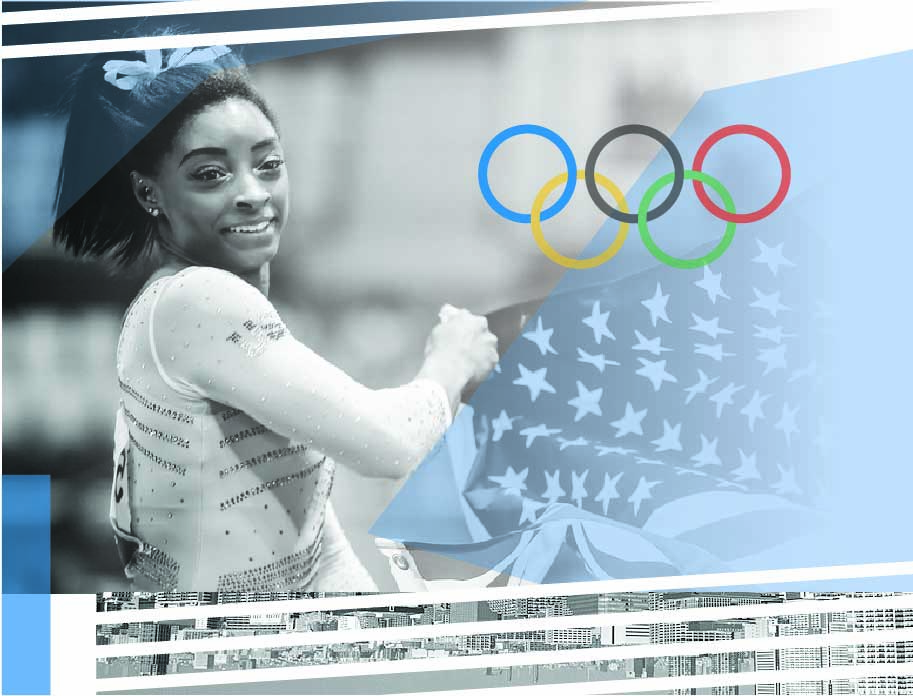
Dr Olga Kolotouchkina
Lecturer and Researcher in the Department of Applied Communication Sciences at the Complutense University of Madrid. Research projects in the fields of citizen engagement, diversity and inclusion, place branding, and public diplomacy.
Twitter: @okolotouchkina

Dr Carmen Llorente-Barroso
Lecturer and Researcher in the Department of Applied Communication Sciences at the Complutense University of Madrid. Research interests include strategic communication, digital communication, creativity, visual representation, diversity and inclusion.

Section 1: Tokyo & Mega-Events
- Public relations as the key in the 2020 Tokyo Olympic and Paralympic Games
- Tokyo 2020, East Asian geopolitics and Olympic diplomacy
- Anti-sex beds? Fake news! : why this video went massively viral?
- Power sharing: Olympic sponsorship and the athlete’s personal brand
- The Tokyo 2020 Organizing Committee’s veil of effective public relations to help save itself and the start of the Games
- Host city and mega-events: Olympic legacy in Japan
- The rise of critical consciousness in Japan: An intangible and unintended legacy of the Tokyo 2020 Olympic Games
- The soft power of the Olympics in the age of Covid 19
- Tokyo 2020 Olympic Games, nationalism, identity and soft power
- The typhoon games
- Environmental leadership showcased in the Olympic Games
- Simone Biles and prioritizing athlete well-being
- How the female athletes of the Tokyo Olympics are reframing the way we think about motherhood
- Deliver a medal or apologize: A daunting task imposed on Japanese Olympians
- What happened to Rule 40 at Tokyo 2020?
- Cultural programming at Tokyo 2020: the impossible Olympic festival city?
- A green Olympic legacy for future generations?
- Lessons from Tokyo: the impact of the Paralympics in Japan
- The Olympic & Paralympic sponsorship without category exclusivity: Background of sponsorship exclusivity in Olympic and Paralympic Games (OPG)
- Counting cases, counting medals: Containing the Olympic contagion during the Tokyo Games
- The Olympic Games and ambush marketing via social media
- Pride and burden of striving for perfection at the Olympics
One of the main characters of the Opening Ceremony of the 2020 Tokyo Paralympic Games was 13-year-old Yui Wago, performing the role of a single-winged tiny airplane. Initial fear of flying gave way to celebration of beauty in differences with a group of friends with various health conditions. The emotional story featuring a girl in a wheelchair is a powerful metaphor of the engagement in the Paralympic experience of the younger generation in Japan as a relevant part of the legacy of the 2020 Tokyo Games.
The Paralympic movement plays an important catalyst role in promoting understanding and firsthand experience of disability for children and young people. The invisibility, and the representation of disability as a lack of ability or personal failure lead to social marginalization and exclusion of people with disabilities from the public sphere. Physical signs of difference related to disability result in prejudice, labelling, and discrimination as personal appearance and individual autonomy have an influence on the presupposed inferiority of functional capacities of people with disabilities. Cultural schemas sustaining non-disabled people in privileged positions and people with disabilities in the subordinate position were also identified among non-disabled children.
Since the designation of Tokyo as the host city of the 2020 Games, a series of meaningful projects aimed at raising awareness and understanding of disability among kids and teenagers have been launched in Japan. The “Yoi, Don!” program involved a combination of educational tools and experiential fun activities fostering knowledge and personal engagement of the younger generation in Olympic & Paralympic experience through the discovery and practice of Paralympic sports, informal meetings with elite para-athletes to share their personal experience, fun group activities, and celebration of entertaining Olympic & Paralympic social events for families and kids.
The Olympic and Paralympic mascot selection process became a relevant milestone in the engagement of schoolchildren in their firsthand experience of the 2020 Games. The most charming characters of the Tokyo Games, Miraitowa and Someity, were selected by children from over 14,000 schools in Japan through classroom debates and a collective voting process. Children with visual impairment were provided specific 3D models of each mascot to ensure their touch and feel review.
In parallel, the Agitos Foundation of the International Paralympic Committee launched I´mPOSSIBLE, an educational program aimed at inspiring the younger generation with Paralympic values, promoting social inclusion, and influencing perceptions about people with disabilities. The first five winners of the I’mPOSSIBLE award were recognized at the Closing Ceremony of the Tokyo 2020 Paralympics, acknowledging the outstanding achievements in inclusion practice made by schools and para-athletes in Japan and overseas.
Another meaningful action aimed at enabling a fun and entertaining experience of the challenges and features of para-sports, was launched by the national Japanese broadcaster NHK three years before the Games. The series Animation x Paralympic: Who is your Hero? introduced Japanese anonymous and famous para‐athletes of 11 Paralympic sports categories with anime‐style narrative and including popular anime characters from the most famous Japanese series. The contribution of famous Japanese manga artists and pop-singers to the depiction of para‐athletes as manga and anime iconic characters offered kids and teenagers a fresh and disruptive perspective on para-sports and disability as personal identity and community empowerment. The iconic manga narrative featuring Japanese para-athletes was also used in the promotional campaigns Find your Hero and Be the Hero launched by the Tokyo Metropolitan Government for its Team Beyond project to support the Paralympic movement.
The Paralympic Games are a powerful global platform bringing under the spotlight the most straightforward human experience of disability, as well as its underlying challenges, limitations, and achievements. The increasing presence of young athletes among the Olympic and Paralympic stars (13-year-old Nishiya Momiji, gold in the women’s skateboarding street; 14-year-old Miyuki Yamada, silver in the women’s 100m backstroke S2 class, or the 12-year-old table tennis player Hend Zaza, to name just a few) makes the global Olympic and Paralympic experience more challenging, relatable and fun to kids and teenagers. A direct involvement and critical engagement of children and young people in the Paralympic movement have a transformative impact on the social perception of people with disability. The Tokyo 2020 Paralympic Games have become an important milestone in raising awareness and understanding of disability among the younger generation in Japan, building an inclusive society with a barrier-free mindset.

